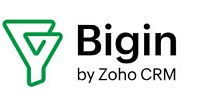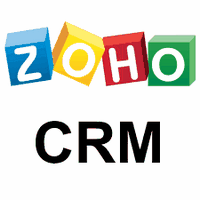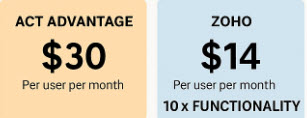 So, do you think you want to start using ACT!, Microsoft Office Live or Outlook Business Contact Manager to help manage – and grow – your business? You’ll want do a bit of homework first to see if you’re ready to take the plunge into the world of CRM .
So, do you think you want to start using ACT!, Microsoft Office Live or Outlook Business Contact Manager to help manage – and grow – your business? You’ll want do a bit of homework first to see if you’re ready to take the plunge into the world of CRM .
1. How different are your customers? Do you sell a variety of products or services? Are your customers spread across a wide geographic area and/or are they assigned to a specific territory? Are there other demographics that determine your sales process (age range, company size, annual revenue)? If your customers are across the board, CRM may be your answer. “The purpose of the CRM software is to manage what can’t be managed well otherwise,” says Jeff Tanner, professor of marketing at Baylor University’s Hankamer School of Business. “That implies a certain level of complexity.”
2. What are the buying patterns of your customers? If yours is a business that sells only a limited number of items, or items that tend to last, tracking buying habits may not be a consideration. But, if customers buy on a fairly frequent basis – or buy a variety of products – CRM can be essential in knowing who’s buying what, how often and those times of year when those purchases are likely to occur.
3. Do you need a gauge to track your progress? Are you keeping your customers satisfied? Are your average transactions going up and down? Are your marketing efforts resulting in increased sales? CRM software is designed to help you answer these questions.
4. Do you need a centralized database that your entire organization can share? Do you have multiple lists of your contacts in Excel or Outlook? If so, are sending duplicate information to the same contact, or are multiple people in your organization contacting the same prospect? Can the people in your organization access a contact record to determine when and how they’ve been contacted in the past – and by whom?
5. Are things falling through the cracks? One reliable sign that your company is in need of CRM software is finding that things are “falling through the cracks.” Do you have an organized, consistent method for contacting both your prospects and your customers? Are you able to see where you stand on a project – especially if numerous members of your organization are involved? If your company needs a better sense of organization you need to implement a CRM system.
6. How do you communicate with contacts? Your present system is probably sufficient if your sole method of contact is by phone, you have a relatively small number of contacts – and you’re the only one doing the contacting. However, as your numbers grow, you’ll probably need to use a variety of ways (and personnel) to “stay in touch.” CRM solutions allow you to market via various delivery systems (e-mail, fax, traditional mailing). In addition, they help you to target when to send mailings and which sub-set of your database you want to received those mailings.
7. Are you willing to devote the time and resources necessary to properly implement a CRM solution? I deal with numerous CRM software packages and know one thing for certain: you will need to spend money on both the software and its implementation. You will also need to make sure that both you – and your employees – are properly trained on its usage. Failure to do so will result in less than satisfactory results. If you are not willing to make an investment in your company’s future, you would be better served by maintaining your current system.
If you’re interested in finding the CRM solution that’s just right for your business, please contact us or visit our website!



